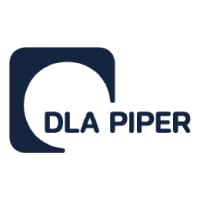

VP, Group legal director, General counsel | DNV AS



Torbjørn Bekken
VP, Group legal director, General counsel | DNV AS
What are the key projects that you have been involved in over the past 12 months?
In 2024, DNV Group Legal had a focus on global improvement projects related to identified legal risks, such as:
Conflict of Interest:
As a provider of both assurance and advisory services, Group Legal has identified potential conflict of interest as a significant legal risk for DNV. Group Legal has therefore been instrumental in establishing global governance for, and implementing systems and digital tools for, solid and efficient conflict of interest handling in DNV. I, as Group Legal Director, am also Chair of the DNV Group Impartiality Committee, which is the highest escalation body for conflict of interest discussions in the organisation.
Contingent Workforce Regulations:
DNV’s business model relies quite substantially on qualified contingent workers who support operations with their unique capabilities. Developments in regulations globally related to the use and protection of contingent workers, combined with DNV’s commitment to staying compliant in everything we do, pushed this issue up on the list of legal risks to be addressed in 2024.
DNV Group Legal has been instrumental in establishing global governance for, and implementing systems and digital tools for, solid and efficient screening, categorisation and compliant handling of contingent workers in the organisation.
Efficiency in Contracting:
DNV enters hundreds of thousands of contracts every year. We are therefore dependent on finding a balance between an efficient contracting process and ensuring that our business units contract on terms that align with our pre-defined contracting risk appetite. DNV Group Legal has established a Global Contracting function responsible for supporting the global DNV organisation with contract review and management through a global team of contract specialists. This team applies the DNV Contracting Principles through efficient processes, including the use of AI contracting tools.
In addition to these improvement projects, DNV Group Legal has provided critical and successful support to the DNV organisation in several M&A and litigation processes.
Have you had any experiences during your career as a lawyer that stand out as particularly unique or interesting?
I am a Norwegian-qualified lawyer with a licence to practise in Norway, but I have been fortunate to spend seven years working as a foreign lawyer in Asia.
I spent four years practising privately in Singapore for two different law firms: one and a half years with the Norwegian firm Evensen & Co / Wikborg Rein, and two and a half years with the English law firm Watson Farley & Williams. During this time, I specialised as a shipping lawyer advising clients on shipping litigation and ship financing projects, as well as assisting Norwegian companies looking to establish operations in South-East Asia.
After joining DNV, I spent three years in Shanghai, China, where I was responsible for a legal team supporting DNV’s operations in the Asia Pacific region, covering a geographical area stretching from New Zealand to India. This foreign, and particularly Asian, legal experience as a Norwegian lawyer has given me significant and unique legal and cultural insight, which is highly relevant when managing a global legal operation at DNV.
What do you think are the most important attributes for a modern in-house counsel to possess?
Business acumen – in-house counsel needs to understand the company’s strategic goals and align legal advice with business objectives. Legal decisions should enable and support commercial outcomes, not hinder them.
Risk management mindset – in-house counsel should proactively identify, assess and mitigate risk rather than simply reacting to legal issues. This is critical in today’s fast-moving environment. It is an increasingly important shift that may place pressure on in-house teams, as proactive involvement tends to require more resources than traditional reactive legal work, while legal departments face growing demands to deliver more for less.
Agility and adaptability – regulations and business environments evolve quickly. In-house counsel must be adaptable and open to continuous learning.
Strong communication skills – translating complex legal language into business-friendly terms, influencing senior stakeholders and educating teams on compliance are key.
Leadership and collaboration – acting as a strategic adviser, managing teams and working cross-functionally with departments such as HR, IT, Finance and ESG.
Tech literacy – with the rise of digital tools, AI and automation, in-house counsel must be comfortable with legal tech and data management systems.
Based on your experiences in the past year, are there any trends in the legal or business world that you are keeping an eye on, of which you think other in-house lawyers should be mindful?
DNV Group Legal, like other in-house legal functions, is increasingly facing a landscape of growing complexity and uncertainty. Changes in business models, the implementation of new technologies with new vendor relationships, a volatile political environment, and heightened demands from regulators and enforcement agencies are all shaping how we manage complex and novel legal issues to achieve business goals.
Here are some of the trends I am focusing on when setting the strategic direction for my team:
AI and legal automation – tools such as generative AI are transforming how legal teams handle contracts, due diligence, research and compliance. Understanding both their capabilities and limitations is vital. DNV Group Legal is currently developing an AI-enabled contract review tool to improve the efficiency and quality of the contract review process.
Regulatory complexity – increasing layers of regulation, especially around conflict of interest, data, AI, ESG and cross-border operations, require more agile and informed legal responses. As an assurance provider often acting as an independent third party, DNV operates in a heavily regulated industry. This complexity heightens the strategic importance of legal work and demands more proactive approaches from our lawyers.
Cybersecurity and incident response – legal teams are playing a greater role in preparing for and responding to data breaches, including managing reporting obligations and stakeholder communications. At DNV, Group Legal is deeply involved in establishing the cybersecurity governance framework, handling incidents and managing the purchase of cyber insurance.
ESG scrutiny and greenwashing risk – regulators and investors are increasingly scrutinising ESG claims. DNV faces such scrutiny both in relation to its own reporting and its ESG service portfolio, which includes ESG assurance. Group Legal contributes to developing our governance framework on ESG and supports the business in navigating the relevant regulatory landscape.
Global workforce and remote work laws – employment, tax and compliance risks related to distributed teams and remote work policies are on the rise. Government focus on contingent workforce development is increasing. In-house lawyers in global companies must therefore navigate a fragmented regulatory environment to ensure compliance.